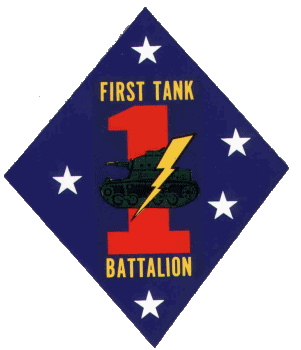
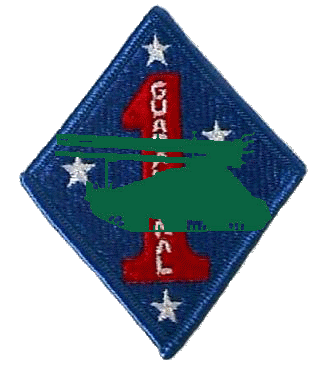
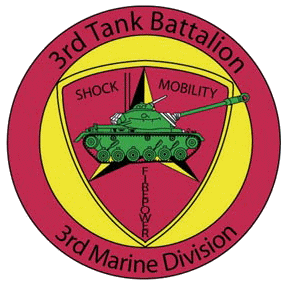
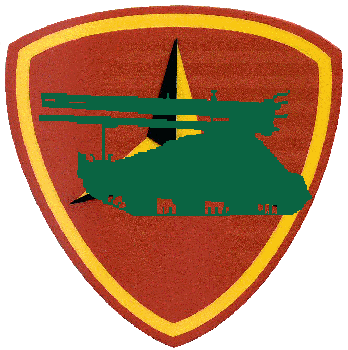
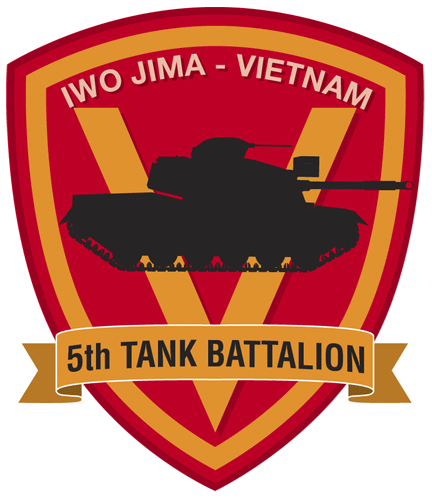
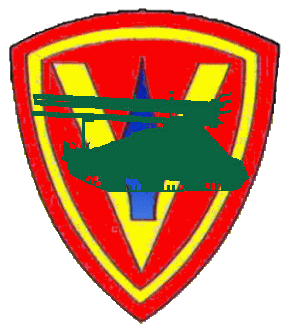
Marine Corps Vietnam Tankers Historical Foundation©
Marine Corps Vietnam-era Tankers and Ontos Crewmen Have Made History.
Your
Historical Foundation is Making it Known.






Books Reviewed by the MCVTHF
|
June 2012
This has been a very busy month for me. I've spent most of it away from my desk and in the Middle East. I had little time to read there other than that that prescribed by the trip itself. However, I did get away long enough to walk (crawl on hands and knees) the battle fields - and multiple cemeteries - of the World War One Gallipoli Campaign. What a sobering few days were these.
In preparation for the trip to the Middle
East and the possibility of getting to Gallipoli, I read a
couple of books about the WWI Gallipoli Campaign during my
flight to (and "interesting" bus ride down from) Istanbul
through Canakale on the Asian side of Turkey. Being a Tanker,
one book jumped out of the Kindle Fire library - "The Defense of
Gallipoli: A General Staff Study" by then-Lt.Col., General
Staff, George S. Patton, Jr., 1936.
While the book is rather clinical - as
military staff studies are prone to be -General Patton, as
portrayed in his biographies and movies, shines through. There's
even humor! "Some Australians who had captured a Turk soldier
had an argument as to whether a Turkish soldier or a goat
smelled worse. They asked a British Sergeant to umpire and make
a decision. First, the goat was brought in and the Sergeant
fainted. Next the Turkish soldier was brought in and the goat
fainted." And some subtleties: "While not specifically stated,
it appears that the Turks, while great water drinkers, did not
use water for any other purpose."
But - in true Patton style - the humor is
rare and the subtleties few. He tells it straight. In short,
British leadership was the worst possible and the direct reason
for the catastrophic loss of Australian New Zealand Army Corps
(Anzac) soldiers and the ultimate loss of the campaign in
humiliating defeat and final retreat.
In his summary, Patton does address the
possible - or better, impossible - use of tanks. In this
observation he is a master of understatement. I can say without
reservation that the flooded rice paddies and triple canopy
jungles that proved a challenge to our tanks and Ontos in
Vietnam were but that - a challenge - and one we overcame. The
foliage and terrain of the Gallipoli Peninsula could not have
been overcome by any level of combat engineering or Tanker/Ontos
crewman ingenuity.
And, Patton's final conclusion in typical unwashed clarity: "Had
the two sets of commanders (British and German/Turkish) changed
sides it is believed that the landing (and the final results of
the several months long campaign itself) would have been as
great a success as it was a dismal failure."
LtCol Ray Stewart, USMC (Ret) President, Marine Corps Vietnam Tankers Historical Foundation |
|
May 2012
January of 1964 opened probably the most defining year of my life. I was to leave the NCO ranks as Sergeant of Marines; join those of a Commissioned Officer; be awarded a college degree (paid for by the Marine Corps); get married; enter; and graduate from The Basic School at MCB Quantico; and meet a 1st Lt Pierpan, USMC who was wearing a Purple Heart ribbon for wounds he'd received in a place I'd never heard of - "Viet Nam." Within 7 months of talking with Lt Pierpan, I was "there."
If I had only known then what I know (or think I know!) now. And few books - of the many I've read and reported on since - would have better prepared me for what was to be the dominant factor in my life for many years (and maybe still!) than "Triumph Forsaken: The Vietnam War, 1954-1965" (2006) by Mark Moyar.
Mr. Moyar is considered a "Revisionist" aligned opposite the "Orthodox" in the context of the historians of the Vietnam War. The two camps argue the cause, conduct, and outcome of the American involvement in the Vietnam War from diametrically opposed theories and philosophies. At one end of the spectrum there are those who believe we should have never entered the war and those who believe the war was the "right" war in the "right" place. There are those who claim the war could have never been won the way it was fought and those who believe we could have won it if we'd have just fought it differently - "hearts and minds vs. body count," "bomb Hanoi/Haiphong vs the Ho Chi Minh Trail".
In rather general terms the conservative philosophy is found in the "Revisionist" camp, the liberal thinkers in the "Orthodox". Moyar's heavily researched and documented book with many primary sources cited has been both praised (lightly and mostly by the Revisionists) and criticized (heavily and mostly by the academic, liberal, and "Orthodox" writers.)
If one doesn't, or didn't, know the difference between those who have placed themselves on one side or the other of the debate and reads Moyar's book with an open mind - starting with Chapter 13 - he will probably find that he's in agreement with the Revisionists' point of view. So be it. But in any case, "Triumph Forsaken" is a good read. I wish it would have been written (and read) in 1965 before I set foot - or tank track - on that sandy South China Sea beach.
LtCol Ray Stewart, USMC (Ret) |
|
April 2012
Ms. Jackie Hunter, the Foundation's Administrative Assistant, has thrown her shoulder behind the long-overdue project of cataloging our considerable library - now more than 200 books. While sorting through the shelves in an attempt to help, I ran across a book, published in 1968, by the now-deceased LtCol William Raymond Corson, USMC (Ret.), "The BETRAYAL", that I first read several years ago. I recalled vaguely that Col Corson was the Commanding Officer of 3rd Tanks during the Vietnam War. As a thumbed through the book, looking for some stories about tanks, and finding little, I thought the book would be of only passing (if any) interest to our Foundation's Breech Block readership. But, curiosity got the best of me and I dug a bit deeper. This Marine Officer was "different" than the commonly accepted criteria. His fate reflected the consequences he suffered as a result of his unique career pattern and his candid appraisal of the direction the Vietnam War had taken..
In his book Col Corson only briefly and rather obtusely alludes to his short 5 months with 3rd Tanks (6 Sep '66 to 15 Feb '67) as the C.O. Foundation members then-2nd Lts Will Lochridge and Bob Mattingly, both "LtCols, USMC (Ret.)" served under Col Corson as the 3rd Tanks' newly created position of Combined Action Officers (CAO) during Corson's stint as C.O. Recognized as the premier expert in the "Hearts and Minds" philosophy, dubbed - erroneously - as the "Other War", Corson left 3rd Tanks as the battalion was preparing to move north to Dong Ha, to become the Corps' highly successful Director of the Combined Action Program at Hq III MAF.
Upon the completion of his Vietnam tour, Col Corson returned to CONUS and then into some "non" Marine Corps positions during which time he wrote "The Betrayal", to be published just after his planned retirement. However, due to bad timing, an unpublished manuscript of "The Betrayal" found its way to the public and Corson ran afoul of Marine Corps regulations. His retirement was held up with the threat of court-martial because of his book's content - suspected of disclosing classified information. Ultimately, the charges were dropped and LtCol Corson was "allowed" to retire. After his retirement he taught, lectured, and wrote a number of books and articles. He died of lung cancer at the age of 74.
What I found uniquely interesting in Col Corson's book was a tribute on page 10 to another of our Foundation members - LtCol Ev Tunget, USMC (Ret.). Col Tunget and is wife reside in the Seattle, WA area. Also, Ev and I correspond on a regular basis via e-mail. I asked him if he would expand on his relationship with Col Corson to find out that Ev served under Bill as his Operations Officer (S-3) during the Corson's tenure as the C.O. of 3rd Tanks in Vietnam. Ev has provided the Foundation copies and documents about Col Corson which we can make available upon request.
Knowing that "The Betrayal" was written and published in the midst of the growing controversy around the Vietnam War (1968) and considering its content, the book is a riveting prediction of how the continued prosecution of the war - measured in "body count" - was going to win the war - NOT!
To learn more about the actions of 3rd Tanks (and for real-war reading) during Col Corson's (and Col Tunget's S-3) tenure as its Commanding Officer, I invite you to visit the Foundation's web site at www.mcvthf.org and follow the prompts to the Third Tanks' posted April '66 to '67 Command Chronologies. LtCol Ray Stewart, USMC (Ret) President, Marine Corps Vietnam Tankers Historical Foundation |
|
March 2012
For light reading during my recent trip to Hawaii, I packed three books - "The End of the Line: The Siege of Khe Sanh" by Robert Pisor; "The TET Offensive: A Concise History" by James H. Willbanks; and "Close Air Support and the Battles for Khe Sanh" by LtCol Shawn P. Callahan, USMC. Reading these I was pursuing in the usually fruitless search for even the slightest mention of Marine Corps Tanks and Ontos participation in the Vietnam War in general and the Siege of Khe Sanh in particular. In the case of the latter publication - Callahan's, which is called an Occasional Paper published by the History Division, United States Marine Corps - I expected zero to be mentioned. My expectations were met. However, the Siege of Khe Sanh did look a lot different from the cockpit of an air plane than from the turret of a tank. So, in that respect i.e., to attain a different perspective of the siege, it was an interesting, even valuable, read but alas, no mention of Marine Tanks or Ontos.
(As an aside, I have a retired Marine BGen Aviator friend who, flying his A-4 low and slow through intense NVA anti-aircraft from bordering Laos and for which he is a Silver Star recipient, destroyed 3 enemy tanks!)
Before leaving CONUS I'd asked our Historian/Archivist/Author Peter Brush his thoughts on Pisor's and Willbanks' books and he offered "Pisor's book was the first book I ever read about Khe Sanh. It stimulated my interest in the topic. Keep in mind it was written a long time ago, with access to limited resources, and the author was a journalist and not a historian. Given those limitations, I'd say it is an excellent book. It's easy to read. I haven't read Willbanks book, but he has a good reputation as a historian. I'd say you made two very good choices." Peter was right- on with Pisor's "End of the Line". The author does not limit the scope of his book to the siege itself but, rather, he puts the "most famous and controversial battle" in the context of the entire span of the Vietnam War. He is very supportive of COMUSMACV, Army General William Westmoreland's decision vis-à-vis Khe Sanh. Peter stated that the book "was written a long time ago" (1982) and many of the resources that are available to writers today were not so 30 years ago. (Re: December's Breech Block). In light of this, one has to wonder how Pisor may feel about "Westy" and the siege today.
Back to the point of this whole exercise i.e., the Foundation and our mission. While the 40+ years since we left Vietnam has seen hundreds of books and articles penned about the Vietnam War, there's been - as the Oman-serving British mercenaries used to say - "4/5s of F--- all" written about Tankers and Ontos Marines. And, Willbank's book is cut from the same cloth. The title includes the word "Concise" Change that to "Abbreviated" and you may be better alerted to its content And again, no mention of tanks, Ontos or even Marine unit designations, for that matter.
So, making the Foundation's case for a book - now, possibly two - that details the history of what Marine Tanks and Ontos did in the Vietnam War and how it was accomplished, remains a goal - a mission - for which we will continue to devote our time, talent, and fortunes.
LtCol Ray Stewart, USMC (Ret) |
|
Feburary 2012
One of the most treasured books in the Foundation's Library is our signed copy of "Boys of '67" written by Charles Jones and autographed by LtGen Martin R. Steele, USMC (Ret.) the highest ranking tank officer in the history of the Marine Corps, a Foundation Director and Life Member. The book gets its title from the Marine Officer Basic School, Quantico, VA Class of 1967. The Forward is written by Gen Anthony C. Zinni, USMC (Ret) former Commander-in-Chief, U.S. Central Command. The book features 3 now-retired Marine Generals, graduates of "TBS '67" - Retired MajGen Ray L. "E-Tool" Smith; Retired LtGen Martin R. "Marty" Steel; and Retired Gen and 32nd Commandant, James L. "Jim" Jones Jr.
A few years ago, reading the "Boys of '67" for the first time, I naturally focused on that written about Foundation Board Member, LtGen Steele. I've since re-read Jone's fascinating book which binds together the colorful threads of the lives of three men who rose to the ranks of Marine Generals possessing a distinct set of unique talents and traits. And, while the author describes Jones as the "cool headed thinker"; Steele as "the passionate idealist"; and Smith as "the courageous combat leader", that is not to say that each Marine did not, in some degree, share those talents and many more. During their long and distinguished careers they served in many different parts of the world at different times and under different circumstances and with every assignment put their indelible mark on the Marine Corps as we served it in Vietnam and as we see evolving today.
I believe you will find "Boys of '67", tracing the careers of three of our General Officers, a worthwhile - if I might say, even illuminating - read.
LtCol Ray Stewart, USMC (Ret) |
| January 2012 ALWAYS FAITHFUL: U.S. Marines in World War II Combat – The 100 Best Photos. By Eric Hammel. Published by Osprey Publishing. 200 pages. Stock #1849085382. $36 MCA Members. $40 Regular Price. If “A picture is worth a 1,000 words” Eric Hammel’s latest – and probably his last – book speaks volumes. This 200 page masterpiece of the Marines’ combat in the WW II Pacific Campaign is surely a “page turner” but not in the usual sense. While the reader will surely be eager to turn the page, the mental “grip” of the photo is not easily loosened. Each provides a unique and specific story. The book tells the story of the Marines’ nearly unfathomably costly victory over the Japanese and each picture – image by image - captures the essence of the war, providing graphic pieces of the battles and campaigns that led the Marines through that long, brutal, bloody war to victory. Hammel briefly explains in his “Introduction” how war reporting evolved and how the first brutally graphic combat photos of Tarawa, published in the Dec.13, 1943 issue of Life Magazine, rather than demoralizing the American public as feared by the national civilian leaders, actually steeled its resolve. At the beginning of each of the 12 chapters Hammel prepares the reader for the story of what the photos to follow, with only the date and place, will reveal. The beach assault; the hot, infested, rotten, stinking jungle; the Marine rifleman going toe-to-toe; supporting arms; closing with, attacking, and killing the enemy; taking it to the enemy with “blunt force”; pain, fear, and being human; brutal but simple – kill the enemy; “Docs” and no Marine left behind; exhaustion; the fallen; and finally “Adieu”. And found on a battlefield grave on Guadalcanal: And when he gets to Heaven, To Saint Peter he will tell, ”One more Marine reporting, Sir I’ve served my time in Hell.” Eric Hammel began writing military history books at age 15 with Guadalcanal: Starvation Island and since, during a 50 year career as an author, has published more than 40 books and nearly 70 magazine articles. He’s also been involved with TV documentaries about Marine Corps operations in WWII, Korea, Vietnam and Beirut. According to Hammel, he “’retired’ in 2008 and took up writing as a full-time hobby”. To that he has recently added with a slight caveat - “Always Faithful is meant to be last call. I honestly have nothing left to say.” If it be so, Always Faithful, an exceptional coffee-table-size book may well be the last Hammel jewel with which military historians in general, and Marines in particular, crown their professional libraries. LtCol Ray Stewart, USMC (Ret) President, Marine Corps Vietnam Tankers Historical Foundation |